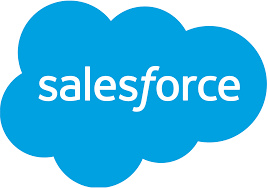Salesforce, Inc.

Salesforce's mission is to be the world's #1 CRM (Customer Relationship Management) company, focusing on empowering businesses to connect with their customers, partners, and employees in innovative ways. They prioritize customer success, innovation, and social responsibility, guided by core values such as trust, customer obsession, innovation, and equality.
Salesforce operates in cloud-based CRM solutions, providing a wide range of products and services, including sales, marketing, service, analytics, and more. Their key revenue drivers are Salesforce Cloud, Service Cloud, Sales Cloud, Marketing Cloud, and Salesforce Platform.
In the CRM market, Salesforce faces competition from companies like Microsoft, Oracle, and SAP. They also invest in sustainability efforts, pledging to reach net-zero greenhouse gas emissions and investing in renewable energy. Salesforce has a strong leadership team and continues to expand its global footprint through acquisitions and partnerships to maintain its position as a CRM market leader and drive innovation.
The Idea edit edit source
Salesforce.com was founded by Marc Benioff in 1999. The idea for the company came about when Benioff, a former Oracle executive, recognized the potential of cloud computing and the need for a more customer-centric approach to business software.
In 1999, Benioff left his job at Oracle and started to explore opportunities in cloud-based customer relationship management (CRM) software. He believed that businesses could benefit from a CRM system that was accessible over the internet and didn't require the complex and costly infrastructure of traditional CRM solutions.
Benioff and his co-founders made a list of potential software solutions, and cloud-based CRM was at the top. They saw the opportunity to revolutionize how businesses manage their customer relationships by making CRM more accessible and user-friendly.
After establishing the company, Benioff and his team developed the software for Salesforce.com. The name "Salesforce" was chosen to reflect the focus on sales and customer relationships.
Salesforce.com was officially launched in February 2000 as a cloud-based CRM platform. In the beginning, it primarily offered CRM solutions, but Benioff had a broader vision for Salesforce to become a leading cloud-based business software provider.
Today, Salesforce.com offers a wide range of cloud-based solutions beyond CRM, including sales automation, marketing automation, service management, and more. The company's innovative approach to cloud computing has also expanded into artificial intelligence, analytics, and a platform for developing custom applications, making it a major player in the cloud technology industry.
Mission Statement edit edit source
Salesforce.com ‘s mission statement is:
We harness technologies that can revolutionize companies, careers, and, hopefully, our world. Salesforce is built on a set of five core values: Trust, Customer Success, Innovation, Sustainability, and Equality.
This statement reflects Salesforce's commitment to leveraging technology to drive positive change in organizations, careers, and the world, guided by their core values.
Segments edit edit source
Sales edit edit source
Salesforce's Sales offering empowers sales teams to streamline and automate their entire sales process, from leads to billing. This comprehensive solution enables sales teams to sell more efficiently, leveraging data storage, lead tracking, opportunity forecasting, analytics, and streamlined quoting and invoicing. It supports flexible working arrangements, aligning with digital-first customer expectations.
Service edit edit source
Salesforce's Service offering facilitates personalized customer service and support at scale. It connects service agents with customers through various channels and includes AI-powered chatbots for issue resolution. Additionally, it offers a field service solution for scheduling and managing jobs in real-time, enhancing customer support efficiency.
Platform and Other edit edit source
The Platform offering allows businesses of all sizes to build custom apps efficiently, enhancing customer engagement and enabling digital transformation. It provides security, compliance, and automation features, with integrated services like AI and real-time data processing. Salesforce's acquisition of Slack strengthens collaboration and workflow integration within the Customer 360 platform.
Marketing and Commerce edit edit source
The Marketing offering enables one-to-one customer marketing journeys across multiple channels, promoting real-time personalization and integrated analytics. Commerce unifies the shopping experience across various touchpoints, driving customer engagement and loyalty. Click-to-code tools offer flexibility in adapting to changing customer needs.
Data edit edit source
Salesforce's Analytics offering, including Tableau, empowers users to gain insights from their data, utilizing AI models, trend spotting, and timely recommendations. The Integration offering, powered by MuleSoft, facilitates data connectivity across systems, increasing agility and enabling connected experiences. The Customer Data Cloud, powered by Genie, offers a hyperscale real-time data platform for highly personalized experiences across sales, service, marketing, and commerce.
Industry Verticals edit edit source
Salesforce provides industry-specific service offerings, tailored to the needs of sectors like financial services, healthcare, manufacturing, and more. These offerings include out-of-the-box capabilities to accelerate time-to-value and adapt to evolving customer demands.
Salesforce Easy edit edit source
Designed for small and medium-sized businesses, Salesforce Easy offers a purpose-built Customer 360 solution. It simplifies purchase processes, provides out-of-the-box features, and enhances productivity for smaller organizations.
Revenue breakdown by segment edit edit source
Salesforce, a global leader in Customer Relationship Management (CRM) solutions, has witnessed significant revenue growth across various segments from 2018 to 2022. The company's diversified revenue streams are a result of strategic initiatives and acquisitions aimed at expanding its product and service offerings. This analysis breaks down Salesforce's segmented revenue and explores the strategies employed to develop these segments.
Segmented Revenue Breakdown:
- Sales: Salesforce's sales segment consistently grew from $4.04 billion in 2018 to $6.83 billion in 2022. This segment primarily represents revenue generated from its core CRM sales solutions.
- Service: The service segment also demonstrated robust growth, increasing from $3.62 billion in 2018 to $7.37 billion in 2022. This revenue category encompasses Salesforce's customer service and support offerings, indicating strong demand for enhancing customer experiences.
- Platform and Other: Salesforce's platform and other services revenue grew from $2.85 billion in 2018 to $5.97 billion in 2022. This segment includes platform-related services and other miscellaneous offerings.
- Marketing and Commerce: The marketing and commerce segment expanded from $1.89 billion in 2018 to $4.52 billion in 2022. This growth reflects Salesforce's efforts to provide comprehensive marketing and e-commerce solutions to businesses.
- Data: Although not reported in 2018 and 2019, Salesforce's data segment contributed $4.34 billion in revenue in 2022. This category includes data-related services and solutions, showcasing the increasing importance of data analytics in CRM.
- Professional Services and Other: Salesforce's professional services and other category grew steadily from $869 million in 2018 to $2.33 billion in 2022. This segment encompasses consulting, implementation, and other services that complement Salesforce's product offerings.
Key Strategies:
- Salesforce has implemented several strategies to develop and bolster its segmented revenue:
- Acquisitions: Salesforce strategically acquired companies that complement its existing portfolio. Notable acquisitions include Tableau (2019) and Slack (2020), which expanded its data and collaboration capabilities.
- Product Diversification: The company continuously diversified its product offerings to cater to various business needs. For instance, its marketing and e-commerce solutions evolved to meet the growing demand for digital marketing and online sales platforms.
- Customer-Centric Approach: Salesforce prioritizes enhancing customer experiences, evident in the significant growth of its service segment. This customer-centric focus includes improving customer support and engagement.
- Data Analytics: The introduction of the data segment highlights Salesforce's emphasis on leveraging data analytics for business insights and decision-making, a crucial component in today's CRM landscape.
- Professional Services: Salesforce expanded its professional services offerings, providing customers with consulting and implementation support, thus enhancing the overall value proposition.
Salesforce's impressive revenue growth across segmented categories from 2018 to 2022 underscores its commitment to innovation and diversification. Through strategic acquisitions, product diversification, a customer-centric approach, data analytics, and professional services, Salesforce has solidified its position as a leading CRM provider and continually adapts to meet evolving market demands. This multi-faceted approach has enabled Salesforce to thrive and maintain its leadership in the CRM industry.
Leadership edit edit source

Marc Benioff is the Chair, CEO, and Co-Founder of Salesforce, a global leader in CRM software. Under his leadership, Salesforce has become a Fortune 150 company with 75,000 employees and is recognized for innovation and equality. Benioff has received numerous accolades for his leadership, including being named "Innovator of the Decade" by Forbes and one of the "World’s 25 Greatest Leaders" by Fortune. He is also known for his philanthropy, creating the 1-1-1 model of philanthropy on day one of Salesforce to improve communities worldwide. Benioff and his wife have donated extensively to healthcare, education, and environmental causes. He is the owner of TIME and author of "Trailblazer: The Power of Business as the Greatest Platform for Change."

Parker Harris, Co-Founder and CTO of Salesforce, oversees the company's technology vision and has been instrumental in driving its technology strategy, including initiatives like Hyperforce and Lightning Experience. He's passionate about cloud computing's role in digital transformation. Before Salesforce, he co-founded Left Coast Software and worked in sales force automation. Harris holds a B.A. in English literature from Middlebury College.

Amy Weaver serves as President and CFO at Salesforce, leading the global finance organization. Before this, she was Chief Legal Officer, overseeing legal and corporate affairs at Salesforce. Her background includes legal roles at Expedia Group Inc., Cravath, Swaine & Moore, and Perkins Coie, along with work in legislative aid and clerking. She serves on several boards and holds a JD from Harvard Law School.

Ariel Kelman is the President and Chief Marketing Officer at Salesforce, responsible for global marketing efforts. He has a background in economics with a Bachelor of Arts from the University of California, Berkeley. Ariel has previously worked at Salesforce and served as CMO at Oracle and AWS before rejoining Salesforce in 2023.

Brian Millham serves as President and COO at Salesforce, overseeing various key functions including sales, customer success, marketing, and more. He has been with Salesforce for over 23 years and has played a significant role in the company's growth and development. Brian's background includes experience at Oracle and Remedy Corporation, and he holds a Bachelor of Arts from the University of California, Berkeley. He also serves on the board of Newsela, an education technology company.

David Schmaier serves as the President and Chief Product Officer at Salesforce, leading the company's global product strategy and vision. He brings over three decades of experience in enterprise software and CRM. David was previously the CEO of Salesforce Industries, and before that, he co-founded and led Vlocity. He holds a B.A. in mechanical engineering from Rensselaer Polytechnic Institute and an MBA from Harvard Business School.

Juan Perez is EVP and CIO at Salesforce, responsible for the global IT team and advising customers on digital transformations. Previously CIO at UPS, he's been recognized for his leadership in technology adoption and received awards like the Forbes CIO Innovation Award. Juan holds degrees in industrial and systems engineering.

Kendall Collins is the Chief Business Officer and Chief of Staff to Marc Benioff at Salesforce. He oversees strategic initiatives and customer relationships for the Office of the Chair and CEO, as well as the global communications team. Kendall has held various executive roles at Salesforce and other companies, driving innovation and marketing strategies. He holds a B.S. in commerce and has extensive experience in the tech industry.

Miguel Milano is the President and Chief Revenue Officer at Salesforce, responsible for global sales and distribution. He has a successful track record in international sales, previously led sales organizations at Salesforce, and held leadership positions at companies like Oracle, McKinsey, and Telefonica. Miguel has engineering degrees and an MBA from MIT's Sloan School of Management.

Nathalie Scardino is Salesforce's interim Chief People Officer, responsible for the global people strategy, employee engagement, and business value. She has over a decade of experience at Salesforce, including roles in recruiting, onboarding, and employee learning. Nathalie has a background in sales and executive search, focusing on technology and digital transformation. She serves on the board of San Francisco Youth Theatre and holds a B.A. from Goldsmiths, University of London. She resides in San Francisco with her family.
Sabastian Niles serves as Salesforce's President and Chief Legal Officer, responsible for global legal and government affairs. With a background as a partner at Wachtell, Lipton, Rosen & Katz, he has extensive experience in corporate transformations, governance, mergers, and sustainability. Sabastian is affiliated with various organizations, including the Aspen Institute, and holds a law degree from Harvard Law School, as well as degrees in finance, economics, and decision and information sciences from the University of Maryland.
Sarah Franklin, President & Chair of the Advisory Board at Salesforce, has over 15 years of experience within the company. She previously served as Chief Marketing Officer and has been dedicated to empowering individuals in technology careers. She played a significant role in launching Trailhead, Salesforce's online learning platform. Sarah has received recognition on Forbes' Most Influential CMO list and holds degrees in chemical engineering and biochemistry from Virginia Polytechnic Institute and State University.
Srini Tallapragada, President and Chief Engineering Officer of Salesforce, oversees a global engineering team responsible for developing and securing the Salesforce Customer 360 and Hyperforce. With over a decade at Salesforce, Srini has driven product and platform innovations. Prior to joining Salesforce in 2012, he held roles at Oracle and SAP. Srini holds a PGDM from XLRI and a BTech in Computer Science from NIT, India. He also serves as an independent director on the board of Avalara.
Suzanne DiBianca, EVP & Chief Impact Officer at Salesforce, has been with the company for over 20 years. She co-founded the Salesforce Foundation and leads Salesforce’s stakeholder capitalism strategy, focusing on ESG efforts, climate action, and the Salesforce Ventures Impact Fund. Suzanne pioneered the 1-1-1 model of corporate philanthropy and is involved in various UN and World Economic Forum councils, as well as serving on multiple advisory boards. She is a graduate of the University of Colorado at Boulder.
Ownership structure edit edit source
The provided data offers a glimpse into the ownership structure of Salesforce, a prominent company in the Customer Relationship Management (CRM) market. The ownership structure of Salesforce reflects a substantial presence of institutional investors and mutual funds, which is typical for a large, publicly traded company in the technology sector. Salesforce's appeal to institutional investors may be attributed to its position as a leading CRM software provider and its role in the broader technology industry.
Notably, Vanguard and Blackrock, both giants in the investment management industry, hold significant stakes in Salesforce. This suggests a high level of confidence in the company's growth potential and long-term prospects.
The presence of various mutual funds, particularly those tracking major stock indices like the S&P 500, indicates that Salesforce is a component of many diversified investment portfolios. This inclusion underscores Salesforce's prominence within the technology sector and its influence on broader market performance.
Overall, Salesforce's ownership structure reflects a diverse mix of institutional and retail investors, showcasing the company's appeal to a broad range of stakeholders. It's worth noting that while institutions dominate the ownership landscape, individual investors and mutual funds also play pivotal roles in shaping the company's shareholder base.
| Top Institutional Holders | |||
| Holder | Shares (millions) | % of Total | Value (million USD) |
| Vanguard Group Inc | 83.2 | 8.5% | 17,041.6 |
| Blackrock Inc. | 70.6 | 7.3% | 14,467.3 |
| State Street Corporation | 45.7 | 4.7% | 9,351.2 |
| FMR, LLC | 37.9 | 3.9% | 7,757.9 |
| Morgan Stanley | 19.6 | 2.0% | 4,006.3 |
| Capital World Investors | 19.2 | 2.0% | 3,941.4 |
| Geode Capital Management, LLC | 17.8 | 1.8% | 3,643.2 |
| Price (T.Rowe) Associates Inc | 15.2 | 1.6% | 3,107.3 |
| Fisher Asset Management, LLC | 13.9 | 1.4% | 2,845.5 |
| JP Morgan Chase & Company | 13.6 | 1.4% | 2,776.3 |
| Top Mutual Fund Holders | |||
| Holder | Shares (millions) | % of Total | Value (million USD) |
| Vanguard Total Stock Market Index Fund | 28.9 | 2.9% | 5,915.5 |
| Vanguard 500 Index Fund | 23.1 | 2.3% | 4,735.1 |
| Fidelity 500 Index Fund | 11.0 | 1.1% | 2,245.5 |
| SPDR S&P 500 ETF Trust | 10.8 | 1.1% | 2,217.6 |
| iShares Core S&P 500 ETF | 8.9 | 0.9% | 1,828.1 |
| Vanguard Growth Index Fund | 8.0 | 0.8% | 1,642.4 |
| Vanguard Institutional Index Fund-Institutional Index Fund | 7.0 | 0.7% | 1,435.4 |
| Growth Fund Of America Inc | 6.4 | 0.6% | 1,318.2 |
| SPDR Dow Jones Industrial Average ETF | 5.6 | 0.6% | 1,146.3 |
| Fundamental Investors Inc | 5.3 | 0.5% | 1,080.5 |
Corporate Strategy edit edit source
Salesforce outlines several key strategies to drive its business growth. These strategies encompass customer relationships, geographic expansion, industry-focused solutions, leveraging partnerships, reducing customer attrition, mergers and acquisitions, and technology development and operations. Additionally, the company emphasizes competition, customer service and support, sales and marketing, intellectual property protection, and its commitment to human capital management.
Expand Customer Relationships edit edit source
Salesforce aims to deepen existing customer relationships by cross-selling and upselling its service offerings. It focuses on encouraging customers to adopt multiple service offerings, providing a comprehensive solution for their front-office business technology needs. This involves upgrading customer experiences with new products and features and expanding into new functional areas and business units. Additional support offerings also contribute to this effort.
Increase Geographic Reach edit edit source
The company plans to extend its global reach by selling its services to new customers in new regions. This expansion involves direct sales efforts, the development of indirect distribution channels, and new go-to-market strategies. Salesforce invests in both domestic and international operations and infrastructure to deliver high-quality services worldwide.
Focus on Industries and New Products edit edit source
Salesforce's growth strategy involves delivering innovative solutions tailored to specific industries, such as financial services, healthcare, and manufacturing. The company collaborates closely with customers to develop solutions that align with their needs, resulting in products like Genie, which enables real-time data management across industry-specific solutions.
Leverage Partner Ecosystem edit edit source
Salesforce leverages its partner ecosystem, including independent software vendors (ISVs) and system integrators (SIs), to expand into new markets and industries. The Customer 360 Platform allows partners to create and market cloud-based apps on the AppExchange, the company's enterprise cloud marketplace. Consulting partners play a crucial role in delivering technology solutions to customers.
Reduce Customer Attrition edit edit source
Salesforce aims to retain existing customers by offering comprehensive customer success programs, technical support, and resources like Trailhead, a platform for learning Salesforce systems. These initiatives are designed to reduce attrition and secure renewals of existing customer subscriptions.
Mergers and Acquisitions edit edit source
The company evaluates opportunities to acquire or invest in complementary businesses, services, technologies, and intellectual property to enhance its Customer 360 Platform. These acquisitions range in size and complexity, from enhancing existing products to introducing new service offerings. Salesforce aims to use its balance sheet, including cash and debt, for acquisitions without diluting shareholders.
Technology Development and Operations edit edit source
Salesforce delivers scalable cloud computing application and platform services using a multi-tenant technology architecture. This approach allows cost-sharing across customers and rapid business scaling. The company also invests in technologies like Hyperforce to offer reliable services globally. Technology development focuses on improving existing services and integrating acquisitions.
Competition edit edit source
Salesforce operates in a highly competitive market with evolving technologies and changing customer needs. Competitors include internally developed enterprise applications, packaged business software vendors, and free or premium software providers. The company anticipates increased competition due to the shift towards cloud-based solutions.
Customer Service and Support edit edit source
Salesforce offers professional services, implementation support, education, and customer support to help customers achieve desired results with its solutions. These services are provided through various channels, including web, telephone, email, and social networks. Premium support options are available for an additional fee.
Sales and Marketing edit edit source
The company primarily sells its services through a direct sales force and partners, with a focus on global consulting firms and systems integrators. Marketing efforts include multichannel campaigns, customer events, press relations, partner co-marketing, customer testimonials, and participation in technology events and sponsorships.
Intellectual Property Protection edit edit source
Salesforce relies on trademarks, copyrights, trade secrets, and patents to protect its technology and brands. The company also enters into confidentiality and proprietary rights agreements. Some intellectual property is made available at low or no cost to promote industry standards and interoperability.
Human Capital Management edit edit source
Salesforce places great emphasis on its company culture and values, which include trust, customer success, innovation, equality, and sustainability. A strong company culture fosters collaboration and innovation and helps attract and retain talent. The company has received recognition for its workplace environment and culture.
As of January 31, 2023, Salesforce had approximately 79,390 employees, with a significant presence both in the United States and internationally. The company's workforce management focuses on fostering an inclusive and diverse workplace.
Historical and Forward Financials edit edit source
Financial ratios edit edit source
Competitor analysis edit edit source
Industry Analysis edit edit source
The global Customer Relationship Management (CRM) market is experiencing significant growth, with a value of USD 58.82 billion in 2022 and a projected Compound Annual Growth Rate (CAGR) of 13.9% from 2023 to 2030. Several key factors are driving this growth, including ongoing trends like hyper-personalization of customer service, the use of AI and automation, and robust social media customer service. These trends are reducing costs, improving response times, enhancing customer satisfaction, and increasing CRM adoption across various industries.
The impact of the COVID-19 pandemic on businesses has been substantial, affecting profitability, innovation, and cash flow. However, the crisis has also accelerated the adoption of digital technology tools, leading to digital transformation and optimization. This shift towards digitalization has increased the use of cloud technology and collaboration tools, further contributing to CRM market growth.
Organizational departments such as sales, marketing, and customer services are integrating CRM systems with AI to enhance customer experiences and feedback. For example, Salesforce launched CRM analytics with AI-powered insights across various industries, including BFSI, retail, and IT & telecom. These developments in CRM solutions are expected to boost market growth.
The use of digital channels for communication between customers and brands is on the rise, with approximately 80% of organizations using CRM systems for sales reporting and process automation. CRM systems provide valuable insights into customer behavior and preferences, enabling brands to implement effective strategies. For instance, Freshworks offered solutions to accelerate e-commerce sales for Supara, a leading apparel company, by improving response times to customer queries.
CRM vendors are rapidly incorporating business intelligence, embedded analytics, the Internet of Things (IoT), and artificial intelligence into their solutions, driving product enhancement and innovation. Salesforce, for example, introduced capabilities to boost digital activities, experiences, commerce, and marketing.
Large corporations have made significant IT investments, but Small and Medium Businesses (SMBs) often face budget constraints. CRM suites cater to the needs of both large enterprises and SMBs, providing tools to gauge business performance and track sales trajectories.
The continued digital transformation across industries is prompting businesses to replace multiple solutions with unified CRM platforms that offer all-in-one capabilities. This transition is further propelling CRM market growth.
Solution Insights:
- The customer service segment accounted for 23.7% of the market share in 2022. Brands are adopting CRM strategies to understand customer behavior, preferences, and trends, and to deliver real-time service performance.
- CRM analytics is expected to grow at a significant CAGR of 13.7%. Integration of analytics features into CRM solutions allows companies to derive valuable insights from business data.
Deployment Insights:
- Cloud deployment dominated the market in 2022, accounting for 56.1% of the revenue share. Cloud computing offers real-time access, scalability, cost-effectiveness, and flexibility.
- On-premise deployment is expected to grow at a CAGR of 10.5%. Some larger enterprises prefer on-premise solutions due to data privacy concerns and the need for enhanced data protection.
Enterprise Size Insights:
- Large enterprises accounted for 61.1% of the market share in 2022. CRM solutions help integrate customer data with various operational departments, enhancing overall performance.
- Small & Medium Enterprises (SMBs) are expected to grow at a CAGR of 15.5%. Cloud-based CRM solutions offer cost-effective deployment and flexibility, supporting SMBs' digital initiatives.
End-use Insights:
- The retail sector held the largest market share at 23.5% in 2022. Retail companies are adopting CRM solutions to analyze customer data, trends, and experiences, driving market growth.
- The IT & telecom sector is expected to grow at a CAGR of 15.6%. CRM solutions in this sector offer brand equity, distribution channels, and customer support, enhancing operational efficiency and engagement.
Regional Insights:
- North America dominated the market in 2022 with a 43.6% market share. The region's enterprises are adopting CRM solutions, particularly in banking, retail, and hospitality, to drive digital transformation.
- Asia Pacific is expected to be the fastest-growing regional market with a CAGR of 15.6%. Emerging countries like China and India are driving demand for innovative CRM solutions, especially in e-commerce.
Key Companies & Market Share:
- Dominant players in the CRM market are investing in research and development to enhance their products and gain a competitive advantage. Mergers, acquisitions, and partnerships are common strategies to upgrade offerings.
- Key players include Salesforce.com, Inc., Microsoft Corporation, SAP SE, Oracle Corporation, ADOBE INC., SugarCRM Inc., Zoho Corporation Pvt. Ltd, Copper CRM, Inc., Insightly, Inc, and Creatio.
Recent developments in the CRM market include Salesforce's launch of Sales Planning, Creatio's partnership with CVM People, Copper CRM's improvements to its list views experience, SugarCRM and sales-i's collaboration, Insightly's release of the Insightly Modern CRM Checklist, and Zoho Corporation's introduction of the latest version of Bigin CRM for small businesses.
In summary, the global CRM market is experiencing robust growth driven by factors like digital transformation, AI integration, and the need for real-time customer insights. Major players are continually innovating to meet evolving customer demands, making CRM a critical component of modern business strategies. The market is expected to reach a value of USD 163.16 billion by 2030, with significant contributions from various industries and regions, particularly Asia Pacific.
Valuation (DCF) edit edit source
Valuation (Sensitivity Analysis) edit edit source
Valuation (Trading Comps) edit edit source
Risks edit edit source
Operational and Execution Risks: Salesforce faces operational risks such as security breaches, defects or disruptions in services, interruptions from third parties, and challenges in realizing benefits from acquisitions. Scaling operations and predicting customer attrition are concerns. Changes in the sales organization and reliance on third-party internet infrastructure are potential disruptors. International operations pose inherent risks, including sales outside the U.S., while larger enterprise customers may lead to complex sales cycles and pricing pressure. Maintaining talent and delivering quality support services are also key challenges.
Strategic and Industry Risks: The company must compete effectively in highly competitive markets, keep pace with technological developments, enhance its brand, and manage its strategic investment portfolio. Adoption of Salesforce's technology and enterprise cloud services by third-party developers and providers is critical. Ethical concerns regarding AI and environmental, social, and governance (ESG) matters are factors to consider.
Legal and Regulatory Risks: Salesforce faces legal and regulatory risks related to privacy concerns, evolving cloud computing regulations, intellectual property rights, government contracts, and sanctions. Lawsuits alleging infringement of proprietary rights and difficulties in obtaining intellectual property protection are concerns.
Financial Risks: The company's revenue recognition model may not immediately reflect business fluctuations. Managing expenses in line with revenue forecasts and dealing with tax rate changes, tax liabilities, currency exchange fluctuations, debt obligations, and accounting standards are financial challenges.
Risks Related to Owning Common Stock: Stock-related risks include quarterly result fluctuations, market price volatility, and associated litigation. Provisions in the company's governing documents and Delaware law may deter changes in control or management.
General Risks: External factors like the COVID-19 pandemic, global economic conditions, natural disasters, and climate change can impact Salesforce's business.